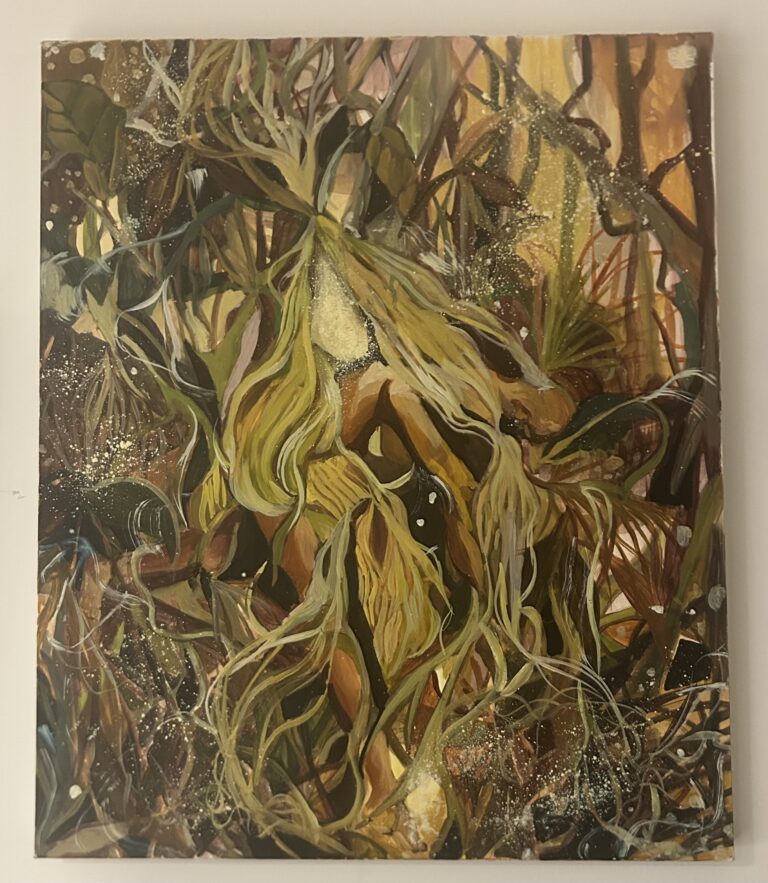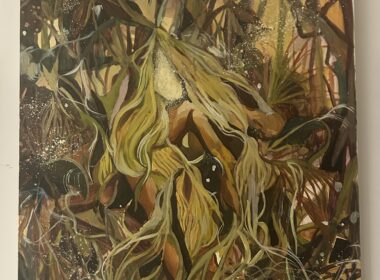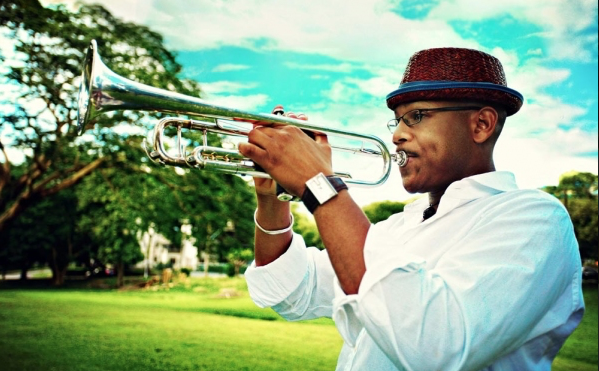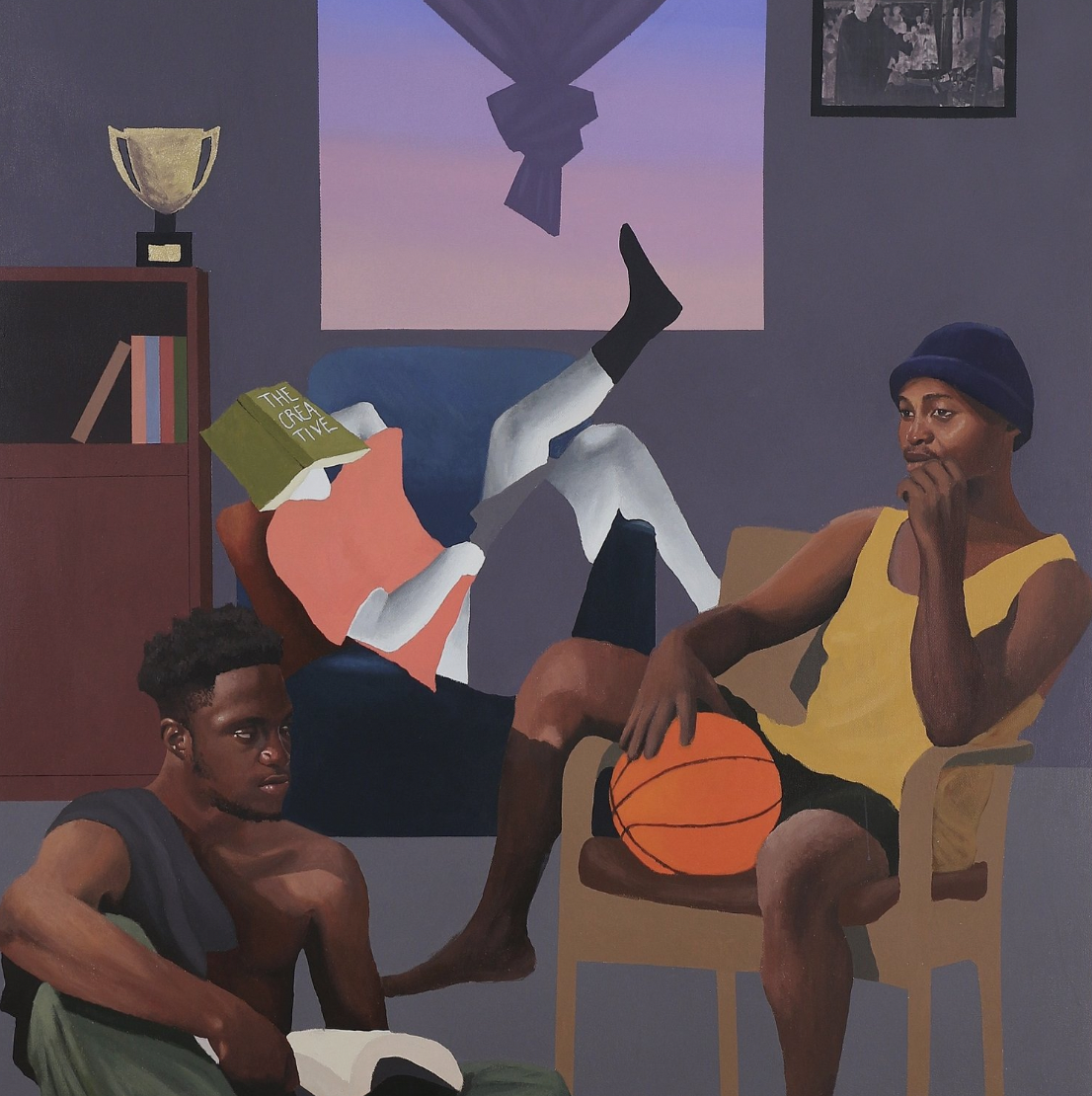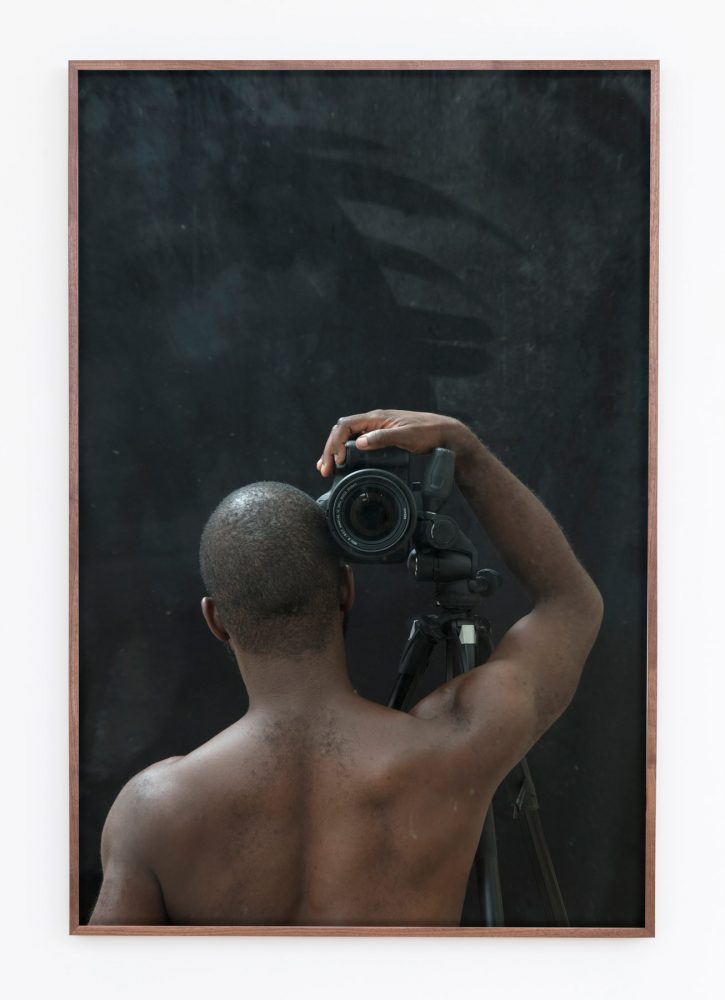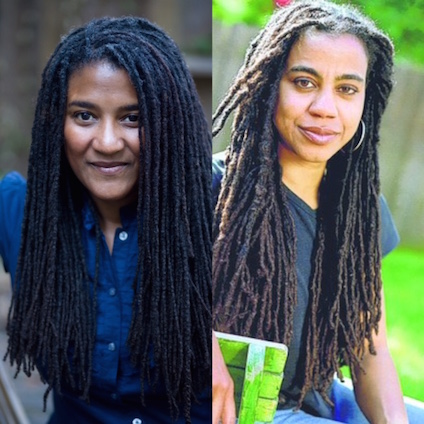On Friday, April 29, take the opportunity to spend the evening with acclaimed jazz trumpeter Etienne Charles and his Creole soul band at Miami’s Historic Lyric Theater. Hailing from Trinidad and Tobago, Etienne Charles comes from a long legacy of musicians and a wise mother who taught him to be a citizen of the world.
Etienne’s music is a true fusion of sounds of the African diaspora, Black music. You’ll experience this fusion of music from across the African diaspora, courtesy of the Dranoff 2 Piano Foundation. Mr. Charles’ study of music spans the globe but still roots itself in the music of Trinidadians who performed in the U.S. and Europe and made it possible for Black musicians to thrive. I had the chance to speak to him about what we can expect this Friday.
One of the things that I’ve learned about you is that you come from a very rich musical history. Can you tell me about your family lineage?
Being from the Caribbean, music is everywhere, but there are a lot of families that play music, and I’m lucky enough to be from one of them. On my father’s side, everybody played music: my uncles, my grandfather, Ralph Charles, also played guitar and cuatro. On my mother’s side, both of her grandfathers were musicians.
You come from a very musical family, but more recently, you also come from a family that was really dedicated to the pan. So how did pan, the instrument of pan, influence the music you make now?
It’s very influential. It’s a very big part of my composition style specifically, like the way I use the base, and specifically, the way I like harmony to move. Also, the way I like to use what we call in steel band world, the jam, which is where you just have a short core progression. In Haitian music, they call it a siwel. It’s just this short section of the piece where it’s a chance for musicians to interact in an improvisatory way. And that’s not necessarily a jazz thing because that happens in Black music all over the diaspora. That’s probably the biggest way that steel pan has been a major influence on my music. It’s also really helped me memorize music because I grew up memorizing music, not reading music as much as I do now, but I still immediately try to internalize what I’m working on because of that.
You are dedicated to talking about the African diaspora and not just making music. Tell me about the beginnings of that.
My grandmother always told my mother, her brothers and sisters that she was raising citizens of the world. That was something she understood. So, from the time I was born, my mother told my sister and myself that we were citizens of the world. And I always was intrigued by how cultures are connected simply because of how many migrations have happened. The African diaspora is amazing because there’s so many similarities. Even though, of course, there are clear differences, because so many people came from one part of the continent to come to scatter all over the new world.
That’s why we have all these similarities in the diaspora. Also, I was lucky enough to start traveling at an early age. And in addition to traveling to play music, also just getting to travel, to explore and meet people and see different things and understand cultures. And that’s why my music is the way it is.
So, when were you first introduced to jazz?
I think one of the first times I consciously remember hearing jazz was at my uncle’s wedding. Or maybe something on TV, maybe Sesame Street. But you know, the thing is American music was so interwoven with American media. So, if you watched the Cosby show growing up, you heard jazz, because Shirley Scott was the musical director for that show. So Shirley Scott, Tim Warfield, Terell Stafford. Look at Sesame street, Bob Cranshaw was playing bass, and then later on, Benjamin Franklin Brown was playing bass. I’m lucky enough to have met and played with a lot of these people. And so just meeting them and connecting with them and understanding what they’ve done.
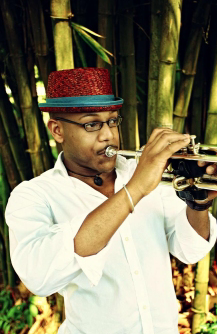
Above: Etienne Charles
What do you think of the state of music today, in particular, the state of Black music?
I think Black music is great. I think Black music is very fluid. I think Black music has always been our conversation. It’s always been our way to acknowledge whatever situation, and as the diaspora evolves and migrations happen to music, you see it throughout the history of the music, where there are always these interactions. You could talk about the influences on what became known in America as jazz. When you talk about the migrations from Haiti, the French Caribbean, the English-speaking Caribbean, the migrations from Mexico, Black Mexicans from Mexico, the migrations from West Africa, all of those people ended up in New Orleans. And the music that came out of that was seen as an America, the music, right?
But it’s all these people from all over the place, you know? And you could go down the list of situations like that, when American music influenced, because with the voice of America and the advent of broadcast radio, you ended up with American sounds being played in the U.K. So you see blues being piped through airwaves all over the world. And next thing, you start hearing all of these blues forms coming out of these places. A great example is Eric Clapton or Paul McCartney, and those types of people who were heavily influenced by those radio broadcasts. The Rolling Stones is another example. And even though these are Europeans, they’re playing Black music, you know?
At a time when Calypso was the prevalent Black music at the time, and from understanding this, I’ve come to the conclusion that it’s always been a communicative device. And it’s been kind of like the way we exchange food and recipes. It’s like, the same ingredients but different, different process. It is the same thing we do with music. So, when I listen to Drake, I cannot do it without hearing dance hall, because that’s the influence. He grew up in Toronto at a time when dance hall was playing heavily in the clubs. And you tie in the media to that and what gets piped where, and that really shows what ends up becoming really popular from a commercial standpoint. But the musics always have that natural exchange that happens. You think about Motown and all the influences that happened with Motown. Motown would not have happened without the great migration.
You know what I’m saying? Like it would not have happened. There’s no way that would’ve happened. The great migration would not have happened without the Haitian revolution, you know? We could go down the list of what didn’t, what would not have happened if. And so, all of these things show that the music is communicative. You could talk about Black music, influence things, going all the way back to people who were a clear influence on Mozart. And it’s a continuous cycle in the diaspora.
So as a professor and working with your students at the University of Miami, are you hopeful about music’s future?
I think we need to take a couple steps back and understand why we play music and why we need music. I think it’s a tricky time to be a music professional or a music academic simply because, well, it’s tricky, and it’s great at the same time. It’s tricky because we’re living in a time where music has become severely devalued in society. And as a result of music devalued, you go back to West Africa, Central Africa, up to Morocco, where the Gnawi people were seen as healers. Musicians were seen as healers, and music was revered as something very powerful in its ability to create, its ability to connect the ancestors, the ability to facilitate a conversation, the ability to create peace.
I think we need to go back to that. And the challenge now is with students who come in, train in that concept where they’re great musicians and they play music, and they’re great technicians, and they’re great practitioners of their art—but that level of appreciation beyond an academic or beyond a passionate level, but understanding the bigger picture of how music plays its role or has historically played this role in societies and cultures around the world—is what I try to bring to the table when I teach my classes. It’s more about “this is a bigger picture I want you to look at.” And from it, I want you to see that you are more powerful than you think.
Give me at least three albums that are on your listening tracklist for you, personally.
I’m really digging into this track right now, composed by Aziza Miller. She used to be known as Linda Williams. She and Natalie Cole wrote a tune together called La Costa, a beautiful tune. There’s this really great track by Ruben Blades. It’s a track called Juan Pachanga. It’s incredibly arranged. And I listen to [Calpysonian] Lord Kitchener all day, cuz it recently was his 100th birthday. His music was clearly influential on the Beatles. And it was clearly influential on [Nigerian artist] Fela Kuti.
